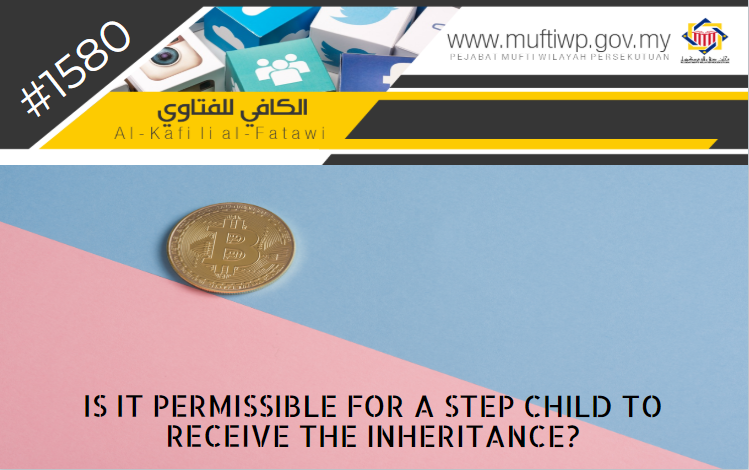Question:
Assalamualaikum. I hope that the panel can answer my question. My mother slept with a man and got pregnant before she married my father and gave birth to a baby boy after her marriage with my father. After the death of both my parents, does my step brother has a right over the inheritance left by my father? I hope you can answer my question as soon as possible. That’s all.
Answer:
Waalaikumussalam wbt,
Alhamdulillah, praise and thanks to Allah for the countless blessings He has blessed us all with. Blessings and salutations to the Prophet Muhammad PBUH, his wives, his family, companions and all those that follow his teachings to the day of judgement.
First, in ensuring that a person has a right to receive a portion of an inheritance, they should be a relation or has a reason to inherit. According to the Islamic Law of Inheritance, there are three reasons for a person to receive the inheritance; nasab (blood relation), marriage and al-wala’. The focus of this discussion will only be on nasab and marriage according to the situation of the above question which involves a wife, child and step child.
Nasab means family ties between an heir (of the deceased) and heirs through blood relations. They are from al-furu’ (children and grandchildren), al-usul (father and grandfather), al-hawashiyy (siblings, uncles and aunts) and other relatives.
Second, relations as a result of blood relations or marriage are different from one another in terms of the portion of the inheritance received. The people who have a closer relation with the deceased will be listed as the major recipients of the inheritance. The reason is the different rates are set by Allah SWT depending on the priority, responsibility and family arrangements.
The recipients of the inheritance are divided to three main ordered groups; ashāb al-furūd, al-‘asabah, and dhawi al-arḥām. The meaning for them are:
- Ashāb al-furūd – The main prioritized heirs in the division and recipients of the inheritance. This group are the heirs of which their division or share of the inheritance has been stated in the Quran, al-Sunnah and ijmak. For example, the husband, wife and daughter.
- al-‘Asabah – the heirs who receive all of the inheritance when there is an absence of ashāb al-furūd or receive the remainder of the inheritance, if there is any, after it has been divided to ashāb al-furūd. For example, the son.
- Dhawi al-arḥām - The heirs other than ashāb al-furūdand al-‘asabah of which their rights on the inheritance is not stated in the Quran, sunnah or ijmak. For example, grandson from the daughter of the deceased.
(See al-Mawarith fi al-Shariah al-Islamiyyah, pg. 37)
Considering the above situation, the step brother of the questioner cum step son of the deceased do not have any right on the inheritance. The reason for this is he does not fulfil the criteria of the eligibility to receive the inheritance such as blood relation, marriage or wala’. As we know, a step son does not have any blood relation with his step-father.
However, it should be reminded, although step son does not have any right on the inheritance, it does not prevent other step siblings who receive the inheritance to be charitable and help to ease the burden and hardship by giving some pocket money, food and others to them voluntarily.
Contemplate on the advice of the Prophet PBUH to prioritize helping one’s family relations. This is in accordance with a hadith narrated by Salman bin Amir RA, where the Prophet PBUH said:
الصَّدَقَة عَلَى الْمِسْكِينِ صَدَقَةْ، وَعَلَى ذِي الْرحم ثنتان: صَدَقَةْ وَصِلَةْ
"Charity towards a poor person is charity, and towards a relation is both charity and maintaining the ties (of kinship)".
Sunan al-Nasa’ie (2582) and Sunan Ibn Majah (1844)
Lastly, when our religion limits a certain matter, it also opens a thousand other doors of goodness. Grab the opportunity to do good, hopefully, we will be showered with good blessings and rizq as well as blessed with ease in our lives, insyaAllah.
Wallahua’lam.


